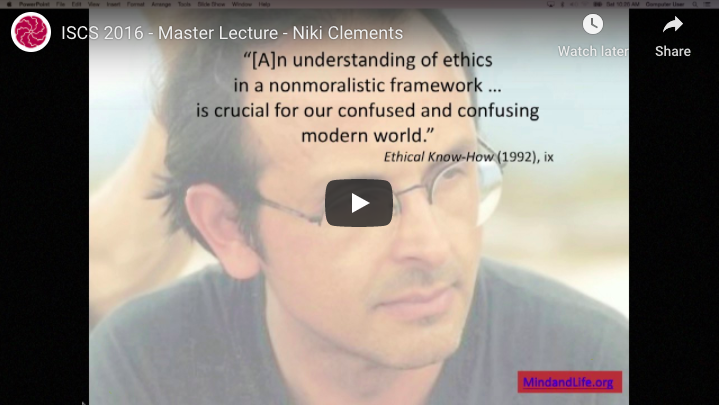In his lectures to the Università di Bologna published in 1992, Francisco Varela, Chilean neuroscientist and co-founder of the Mind & Life Institute, developed the theoretical infrastructure for a lively intersection between contemplative practices of “three wisdom traditions of the East” (as he puts it) and neuroscientific research on embodied cognition and mindfulness practices. Varela stages his work on Buddhist, Daoist and Confucian practices as a response to the simplistically rationalist modern philosophical discourses on ethics. Over and against theoretical, declarative, intellectual knowledge — or “know that” in the language of philosopher Gilbert Ryle — Varela affirms the necessity of stressing procedural, embodied knowledge — “know how.” This lecture will expand the domain of embodied ethics and practical knowledge to other domains of religious contemplative practice. Specifically, Dr. Clements’ work on early Christian desert asceticism explores the model of heart/body/mind integration offered by John Cassian (c.360-c.435), one of the tradition’s greatest interlocutors. Beyond a re-inclusion of embodiment and “ordinary life and action” (in Varela’s words) in our historical understandings of Christian contemplation and prayer, this work extends our consideration of sources for transformative practices, to include texts from alternative traditions and estranged times. The late antique world was a politically tumultuous and often desperate place, and the strategies that these Christian ascetics adopted to change their lives in the face of this uncertainty and loss of meaning — possible only through “a pragmatics of transformation” — has much to say to our own ethical struggles today.
Learning Objectives
At the conclusion of this activity, participants should be able to: 1) Apply Francisco Varela’s model of embodied ethics to early Christian contemplative practices; 2) Describe how early Christian desert asceticism explores the model of heart/body/mind integration as offered by John Cassian; 3) Explain how ancient sources for transformative practices can enhance our understanding of our contemporary ethical dilemmas.


